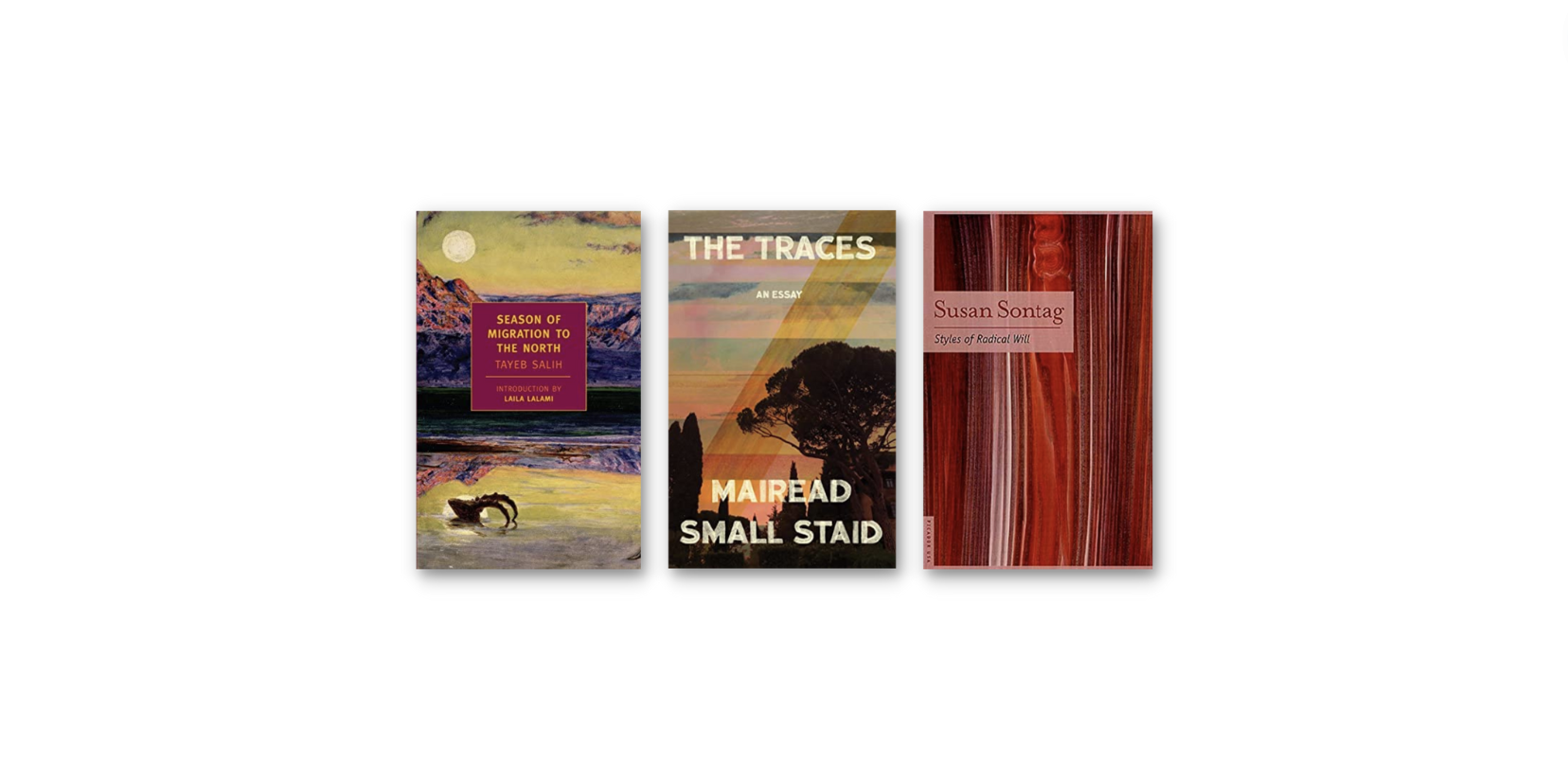End of year lists make me nervous. You have to file them in November, for one thing, leaving open the possibility that the best book, the one that will well and truly round out the past year, is one that has yet to be encountered. This is called neuroticism, I realize, but I like to think it keeps me honest: it’s how I’ve scolded myself these last few weeks every time I trip into the obscene pile of to-be-read books I keep next to my bed.
 I read Etel Adnan’s Of Cities and Women (Letters to Fawwaz) early on in 2022, in January, a fitting book for a year in which I’d find myself preoccupied with certain cities and my relationship to them. A few months later, in late spring, I quit my job and left New York for the summer, subletting my room in Brooklyn and spending most of the weeks that followed in the countries that comprise the former Yugoslavia, along with a few stints visiting friends and family in parts of western Europe. My significant other is originally from Bosnia, and a good portion of my time was spent in Sarajevo, reading writers from that area of the world and trying to understand a little bit more of the history of what I was seeing.
I read Etel Adnan’s Of Cities and Women (Letters to Fawwaz) early on in 2022, in January, a fitting book for a year in which I’d find myself preoccupied with certain cities and my relationship to them. A few months later, in late spring, I quit my job and left New York for the summer, subletting my room in Brooklyn and spending most of the weeks that followed in the countries that comprise the former Yugoslavia, along with a few stints visiting friends and family in parts of western Europe. My significant other is originally from Bosnia, and a good portion of my time was spent in Sarajevo, reading writers from that area of the world and trying to understand a little bit more of the history of what I was seeing.


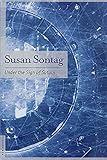
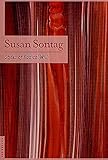

 As a fervent fan of Dubravka Ugrešić’s nonfiction, I kicked myself for only having this summer picked up my first novel of hers, the excellent The Ministry of Pain. On the advice of a friend, I read Miljenko Jergović‘s devastating short story collection, Sarajevo Marlboro, set during the war in the nineties. In a bookstore in Sarajevo’s Old City with a small English-language section, I bought the journalist Snježana Mulić’s elegant, melancholy novel Return, paired with images by the French photojournalist Yves Faure. There were also times in which I read books by outsiders to the region, including a week in which I read most of Susan Sontag’s essay collections—including Under the Sign of Saturn, Styles of Radical Will, and her later work, Where the Stress Falls, which includes her famous essay on Sarajevo. Thrumming in the background as a constant I kept returning to was Rebecca West’s massive, stunning, and oftentimes troubling 1941 travel tome Black Lamb and Grey Falcon: A Journey Through Yugoslavia, which I committed to reading in daily increments of fifty pages before finally finishing in early August. “Yeah,” a woman in a bar in Belgrade told me, “Americans always read that book when they’re here.”
As a fervent fan of Dubravka Ugrešić’s nonfiction, I kicked myself for only having this summer picked up my first novel of hers, the excellent The Ministry of Pain. On the advice of a friend, I read Miljenko Jergović‘s devastating short story collection, Sarajevo Marlboro, set during the war in the nineties. In a bookstore in Sarajevo’s Old City with a small English-language section, I bought the journalist Snježana Mulić’s elegant, melancholy novel Return, paired with images by the French photojournalist Yves Faure. There were also times in which I read books by outsiders to the region, including a week in which I read most of Susan Sontag’s essay collections—including Under the Sign of Saturn, Styles of Radical Will, and her later work, Where the Stress Falls, which includes her famous essay on Sarajevo. Thrumming in the background as a constant I kept returning to was Rebecca West’s massive, stunning, and oftentimes troubling 1941 travel tome Black Lamb and Grey Falcon: A Journey Through Yugoslavia, which I committed to reading in daily increments of fifty pages before finally finishing in early August. “Yeah,” a woman in a bar in Belgrade told me, “Americans always read that book when they’re here.”
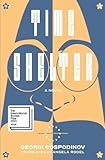


 “No one has yet invented a gas mask and a bomb shelter against time,” goes a fictional epigraph that appears at the beginning of Time Shelter, the Bulgarian writer Georgi Gospodinov’s startling meditation on historical repetition that uses time travel as a political metaphor. That merciless quality of time was something I kept dwelling on. But there were happier iterations of this, too, like when I crashed on an old friend’s couch in Amsterdam and read Mairead Small Staid’s book-length essay The Traces, with its one chapter in particular capturing the compressed sensation of train travel between cities. There was also the long and pleasant weekend I spent reconnecting with cousins in Ireland I hadn’t seen in-person since I was a very small child; afterwards, I read Jang Eun-Jin’s brief No One Writes Back on the train back to Dublin and marveled at its wit. And there were angrier moments of time travel, like when I saw the news about Roe v. Wade back in the U.S., drank an entire bottle of wine while revisiting the Egyptian writer Nawal El Saadawi’s classic novel of feminist anger, Woman at Point Zero, and passed out on our couch in Belgrade.
“No one has yet invented a gas mask and a bomb shelter against time,” goes a fictional epigraph that appears at the beginning of Time Shelter, the Bulgarian writer Georgi Gospodinov’s startling meditation on historical repetition that uses time travel as a political metaphor. That merciless quality of time was something I kept dwelling on. But there were happier iterations of this, too, like when I crashed on an old friend’s couch in Amsterdam and read Mairead Small Staid’s book-length essay The Traces, with its one chapter in particular capturing the compressed sensation of train travel between cities. There was also the long and pleasant weekend I spent reconnecting with cousins in Ireland I hadn’t seen in-person since I was a very small child; afterwards, I read Jang Eun-Jin’s brief No One Writes Back on the train back to Dublin and marveled at its wit. And there were angrier moments of time travel, like when I saw the news about Roe v. Wade back in the U.S., drank an entire bottle of wine while revisiting the Egyptian writer Nawal El Saadawi’s classic novel of feminist anger, Woman at Point Zero, and passed out on our couch in Belgrade.
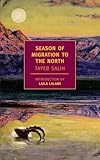

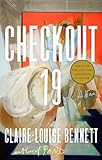



 Upon returning to New York at the end of the summer, I began an MFA. in Fiction, which has given me both time to write more and to read books like the Sudanese writer Tayeb Salih’s phenomenal Season of Migration to the North, which was happily assigned to me for a class. But graduate school is, frankly, a boring topic, so let me instead list other books I read this year, outside of class, that I loved. Hiroko Oyamada’s Weasels in the Attic is a brief but provocative look at marriage in contemporary Japan. Claire-Louise Bennett’s experimental bildungsroman Checkout 19 led me to write one of my favorite essays I completed this year. Mircea Cărtărescu’s Solenoid deserved all the hype it got on Twitter (and R.I.P., I guess, to that platform—one that even Solenoid’s protesters against death would take a second-guess to picketing). I don’t know why we’re apparently in a Marguerite Duras renaissance but if it leads to more of her lesser-known works like her second novel, The Easy Life, being brought to the Anglophone world I welcome it. Thuận’s Chinatown, soaked as it is with an irreparable sense of longing, made me openly weep on the J train. And Arthur Lubow’s 2017 biography of Diane Arbus—read while I worked on a piece of fiction about a photographer—is a surprising page-turner filled with fun details I didn’t know about, like the time a young Barbara Kruger took a class with Arbus (who told her to read Dorothy Parker).
Upon returning to New York at the end of the summer, I began an MFA. in Fiction, which has given me both time to write more and to read books like the Sudanese writer Tayeb Salih’s phenomenal Season of Migration to the North, which was happily assigned to me for a class. But graduate school is, frankly, a boring topic, so let me instead list other books I read this year, outside of class, that I loved. Hiroko Oyamada’s Weasels in the Attic is a brief but provocative look at marriage in contemporary Japan. Claire-Louise Bennett’s experimental bildungsroman Checkout 19 led me to write one of my favorite essays I completed this year. Mircea Cărtărescu’s Solenoid deserved all the hype it got on Twitter (and R.I.P., I guess, to that platform—one that even Solenoid’s protesters against death would take a second-guess to picketing). I don’t know why we’re apparently in a Marguerite Duras renaissance but if it leads to more of her lesser-known works like her second novel, The Easy Life, being brought to the Anglophone world I welcome it. Thuận’s Chinatown, soaked as it is with an irreparable sense of longing, made me openly weep on the J train. And Arthur Lubow’s 2017 biography of Diane Arbus—read while I worked on a piece of fiction about a photographer—is a surprising page-turner filled with fun details I didn’t know about, like the time a young Barbara Kruger took a class with Arbus (who told her to read Dorothy Parker).
 As I write this, it’s late November. There’s still time for me to read a few more 2022-defining books though, alas, they won’t be included in this round-up. But as of last night, I’m 50 pages into a novel that I already know is going to be one of my favorites of 2023: the Brazilian modernist Mário de Andrade’s Macunaíma: The Hero with No Character, at long last brought into English, after a multi-year translation journey, by Katrina Dodson. I can’t wait to read more.
As I write this, it’s late November. There’s still time for me to read a few more 2022-defining books though, alas, they won’t be included in this round-up. But as of last night, I’m 50 pages into a novel that I already know is going to be one of my favorites of 2023: the Brazilian modernist Mário de Andrade’s Macunaíma: The Hero with No Character, at long last brought into English, after a multi-year translation journey, by Katrina Dodson. I can’t wait to read more.
